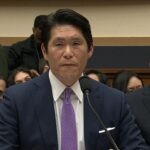
Published March 6, 2023
In recent years, a number of incisive writers on the center-left have been encouraging more attention to economic growth and technological leadership, talking about “supply-side progressivism” and an “abundance agenda.” For a while, it looked like the Biden administration was listening. Last year’s CHIPS and Science Act was grounded in the recognition that investing in high-tech industries and R&D was vital not just to the country’s national security, but to its economic future.
But new guidelines issued Tuesday by the wing of the Department of Commerce responsible for doling out CHIPS funding suggest that “supply-side progressivism” is falling victim to a temptation to use supply-side rhetoric to advance other progressive aims. Instead of a narrow focus on critical industries like advanced logic computer chips, more familiar progressive wish list items are taking priority. Even those of us who have favored more active supports for critical industries have to admit that some industrial policy skeptics’ warnings have proved prescient.
The rationale for the CHIPS and Science Act was largely straightforward—the stresses of the coronavirus pandemic and escalating tensions with China led to a widespread recognition that the supply chain for advanced logic chips has become too concentrated and risky. With more than 90 percent of global production of the most advanced logic chips happening in Taiwan, Congress and the administration wanted to bring more of that manufacturing home. It was, and still is, the right move.
Yet the recent Commerce Department notice risks taking its eye off the ball. It lards the notice of funding availability up like a Christmas tree with additional priorities. The inevitable result will be to drive up costs for participating and water down the effectiveness of the new incentives. CHIPS for America passed with bipartisan support because of shared strategic concerns about China and a desire to help reshore critical supply chains. Using it as a vehicle for long-sought progressive goals undermines the bill’s longstanding bipartisan appeal, making future deals harder to strike.
For instance, the Commerce Department will require applicants seeking more than $150 million in funds to submit a plan to provide their facility and construction workers “affordable, accessible, reliable, and high quality” child care. It wraps the mandate up in high-flown language about increasing maternal labor force participation (never mind that a recent Institute for Family Studies/YouGov poll found that a majority of moms wish to work either part-time or stay at home.)
More importantly, that child care requirement will raise costs for firms, and could actually lead to discrimination against workers with small children. And, of course, it would do nothing to solve the underlying problems of supply constraints that make child care so expensive. If policymakers are worried about the price of child care, they should embrace pluralism, rather than heavy-handed employer mandates.
The Commerce Department will also ask chipmakers to source all iron, steel, and construction equipment domestically, needlessly driving up costs in a handout to a construction industry that has not seen substantial productivity growth in decades. “Buy American” provisions are political winners but economic losers—they will force firms to get less bang for their buck. Notably, TSMC Chairman Mark Liu said last month that construction costs for a new $40 billion fab in Arizona may already be four times higher than in Taiwan. If reducing vulnerabilities in the chipmaking supply chain is truly a pressing concern for economic and national security, these special interests should take a back seat.
Chipmaking facilities also risk being held up by lengthy environmental reviews under the National Environmental Policy Act, which can delay projects by years waiting for lawsuits to resolve. Recognizing the needless delays such reviews can impose on projects that carry no environmental risk, President Joe Biden endorsed Senator Joe Manchin‘s permitting reform package in the last Congress.
But when it comes to chipmaking, the administration has yet to adopt these lessons. Rather than carve out a “categorical exclusion” that would allow chipmakers to bypass NEPA reviews, Commerce instead advised funding applicants to, in effect, take their chances with the legal system and hire consultants who have experience with the statute.
The fact sheet includes typical progressive boilerplate about “using 100 percent renewable energy,” “addressing barriers to economic inclusion,” and prioritizing “minority-owned, veteran-owned, and women-owned businesses.” All of these goals may be well-intentioned, even laudable, but their inclusion betrays an inarguable lack of focus on the matter at hand.
By allowing child care advocacy groups, labor unions, and environmental groups to extract their pound of flesh from the CHIPS implementation, these funding guidelines suggest much of the recent liberal hand wringing about supply-side impediments to growth was mere lip service. There will still be those of us who support federal measures to drive innovation, rejuvenate left-behind places, or tax policies that support parents. But those goals are made more difficult to accomplish when bipartisan efforts, like the initial legislative efforts to boost American dynamism and bolster supply chains, are turned into political wish lists.
The Biden administration came to power heralding a new era of “supply-side progressivism” more attentive to the regulatory and financial bottlenecks that drive up costs for families and impede the domestic growth of key advanced industries. With a once-in-a-generation chance to revive a semiconductor industry that can provide well-paying jobs, particularly for those without a college degree, and reduce the risk of losing access to key chips during a conflict on Taiwan, we cannot afford to allow other pet projects and special interests to get in the way.
Rebuilding one of the world’s most complicated production processes at home will already be an immensely difficult task. Diverting CHIPS funds into unrelated social goals and interest group pay-offs will make it even harder.
Patrick T. Brown is a fellow at the Ethics and Public Policy Center, where his work with the Life and Family Initiative focuses on developing a robust pro-family economic agenda and supporting families as the cornerstone of a healthy and flourishing society.
Patrick T. Brown is a fellow at the Ethics and Public Policy Center, where his work with the Life and Family Initiative focuses on developing a robust pro-family economic agenda and supporting families as the cornerstone of a healthy and flourishing society.












